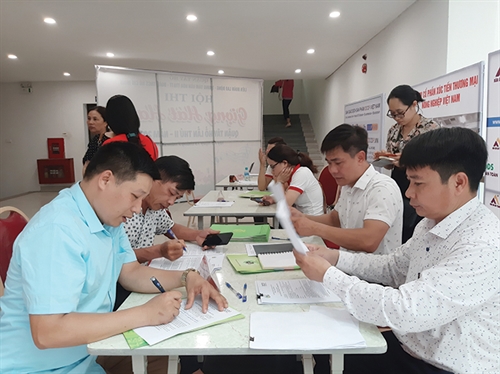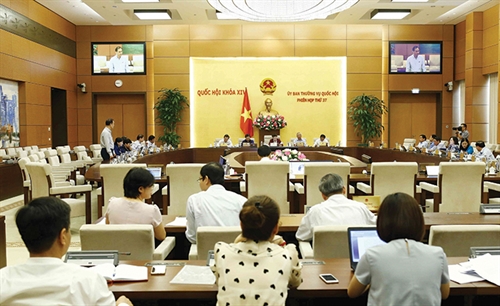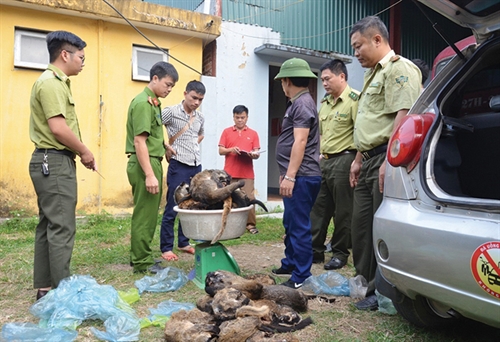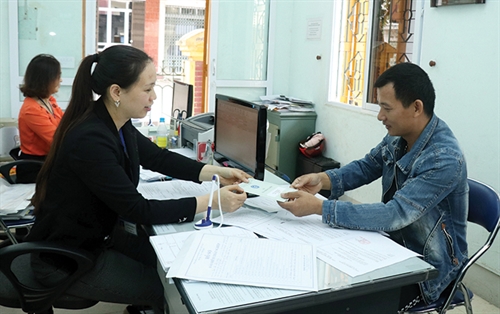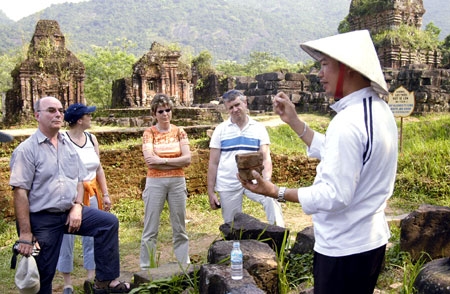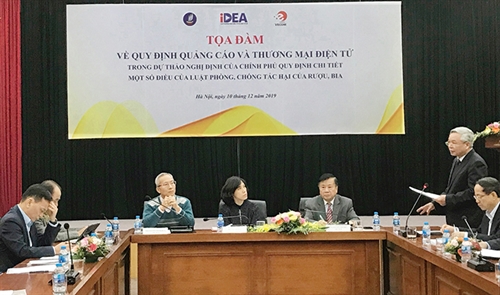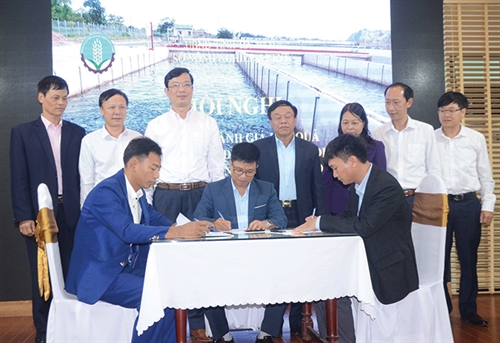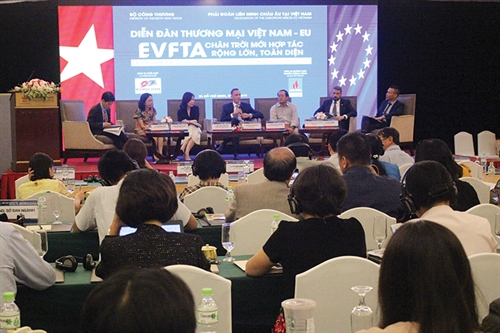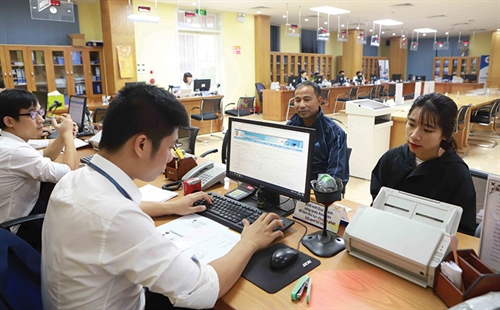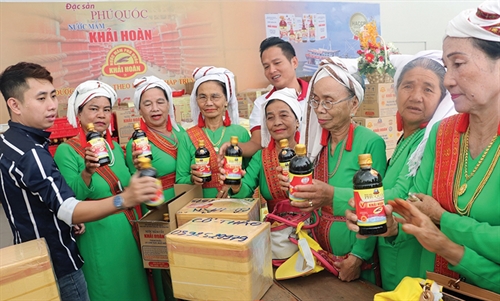This article examines the concept of compulsory licensing under the TRIPS Agreement, the recent implementation of such mechanism in several countries, also its incorporation of the same into Vietnam’s legal framework and most importantly, its domestic practicability amidst the COVID-19 pandemic.
Prof. Dr. Jürgen W. Simon[1] and Nguyen Minh Nhat[2]
From the time of its outbreak, COVID-19 has infected tens of millions of people and become one of the deadliest pandemics of the 21st century. This has led to some of the largest economies in the world racing to develop a potential cure to halt the pandemic in its track. However, in this time of urgency, treaties and convention agreements on intellectual property (IP) would conflict with the global public interests. By having the COVID-19 treatment patented, the patent owner may have the exclusive right to exclude third parties from economically exploiting such treatment by manufacturing, using, offering the sale, or importing the goods, etc. In other words, these exclusive rights put the patent owner in a monopoly position, being the only one who can set prices and supply the goods, which consequently impede the affordable access of developing countries and least-developed countries through high prices. As a developing country with an infant economy, Vietnam may also encounter difficulties to access effective COVID-19 treatment if its price is too steep.
Nevertheless, there are certain flexibilities provided under the Trade Related-Aspects of Intellectual Property Agreement (TRIPS Agreement) that allow member States to take measures limiting the rights of patent holders in order to ease access to the essentially needed patented subject matter. One such mechanism is compulsory licensing, which has also been well incorporated into Vietnam’s domestic laws.
The concept of compulsory licensing under TRIPS Agreement
Article 31 of the TRIPS Agreement provides for a curtailment of the patent-conferred rights by issuing compulsory licenses. A compulsory license is granted by a government and authorizes the use of identified patented subject matter, without the consent of the patentee, by either the government (government use) itself or identified third parties. The use of the patented product has to be predominant for the supply of the domestic market of the member granting a compulsory license. Prior to such a license, a proposed user must have been unsuccessful within a reasonable period of time in negotiating to obtain authorization from the patent holder to use the patented product or process on “reasonable commercial terms and conditions”. This prior negotiation requirement may be waived in the case of national emergency or other circumstances of extreme urgency as well as in the case of public non-commercial use (such as government use). The patent holder concerned has to be paid adequate remuneration taking into account the economic value of the authorization. In case a compulsory license is granted to remedy anti-competitive practices by the patentee, the prior negotiation as well as the requirement of predominant supply of the domestic market may be waived. In this context, the need to correct anti-competitive practices may further be taken into account in determining the amount of remuneration.
Compulsory licensing is seen as an important means to enhance access to medicines, as they can serve three goals. First, compulsory licenses allow the production of generic drugs which are finally priced lower than the original manufacturer’s price and thus enhance access to affordable medicines.[3] Second, as these licenses allow the production and sale of generic drugs, they create and promote competition not only between the patent holding brand name manufacturer[4] and the generic producer, but also (depending on the number of the parties favored and the licenses issued) among generic producers themselves.[5] This in turn reduces prices and hence promotes access to affordable medicines. Often merely the threat to apply compulsory licenses serves as an incentive to reduce prices.[6] Third, compulsory licenses allow the remedy of “Anti-Commons” effects (where a patent cannot be exploited without infringing another patent).[7] Thus, compulsory licenses can promote the availability of improved and even new medicines, as for example the ARV triomune, which is a cocktail of three drugs that are separately patented by three different companies.
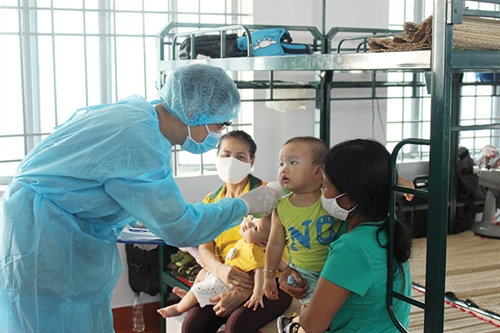 |
Health checkups for children in COVID-19 isolation center of Khanh Hoa province’s Military Command__Photo: Phan Sau/VNA |
| Health checkups for children in COVID-19 isolation center of Khanh Hoa province’s Military Command__Photo: Phan Sau/VNA |
International implementation of compulsory licensing amidst COVID-19 pandemic
Given the current situation, several WTO members, including those among the developing and least-developing countries, have already publicly considered compulsory licensing as part of their pandemic response.
In early March 2020, the Parliament of Chile passed a resolution granting the use of compulsory licenses to facilitate access to vaccinations, drugs, diagnostics, devices, etc., for the prevention and treatment of COVID-19.[8] At the same time, the Committee of the National Assembly of Ecuador passed a resolution requiring the Ecuadorian Health Authorities to provide compulsory licenses over COVID-19-related preventative, diagnostic, and treatment technologies.[9] Similarly, on July 8, 2020, Indonesia expanded the scope of the Government’s ability with regard to compulsory licensing in preparation for eventual COVID-19 vaccines.[10]
Even the developed countries, like Germany[11], Canada[12] and Australia[13], have also indicated their willingness to issue compulsory licenses through recent amendments to their domestic laws.
As the global efforts to combat COVID-19 are intensified, more and more countries could well turn to compulsory licenses or equivalent legislations to ensure access and affordability of crucial medicines.
Legal framework of compulsory licensing in Vietnam
As a contracting member of the TRIPS Agreement, Vietnam has also incorporated provisions of the TRIPS Agreement on compulsory licensing into its domestic IP laws.
Article 7.3 of the 2005 IP Law, which was revised in 2009 and 2019, allows the circumvention of patent rights by the Government “in order to assure objectives of national defense and security, the people’s livelihood and other interests of the State and the society”.
In addition, Article 145.1 of the IP Law also lists circumstances in which the compulsory license will be granted:
(i) For the purposes of public or non-commercial use, national security or in service of national defence and security, disease prevention, and treatment and nutrition of people or other urgent needs of the society;
(ii) The owner of a patent fails to produce the patented product, or apply the patented process for the purpose of national security or defense, disease prevention or treatment, or other urgent situations;
(iii) The person who wishes to use the patent fails to reach an agreement with the owner of a patent in spite of efforts made within a reasonable time for negotiating a satisfactory commercial price and conditions; and,
(iv) The owner of a patent is deemed to have performed anti-competitive practices prohibited by the competition law.
Any compulsory license is only limited to a scope and duration sufficient to achieve the licensing objectives, and largely for the domestic market. The grant of compulsory license is non-exclusive and non-assignable, unless the assignment is effected together with the transfer of the licensee‘s establishment.[14] Of note, the patent owner is entitled to request the termination of use of a compulsory license if the circumstances which lead to it had ceased and are unlikely to recur, provided that such termination shall not be prejudicial to the licensee.[15]
For granting compulsory licenses, ministries and ministerial-level agencies are responsible to issue decisions on licensing of inventions in the sectors under their respective management, when such licenses have been granted for the purposes of national defense and security, disease prevention and treatment or other urgent needs of the society.[16]
Certain remuneration for the right to use a patent licensed under a compulsory decision has to be paid adequately based on several criteria,[17] namely: contractual licensing price of the invention; funds invested in the creation of the invention; profits earned from the use of the invention; remaining valid term of the protection title; necessity of the invention licensing; and other elements directly decisive to the economic value of the licensed use right.
Practicability of compulsory licensing in Vietnam and implementation of Article 31bis
Although provisions on compulsory licensing under the TRIPS Agreement have been incorporated into its domestic laws, Vietnam has so far not ruled on any compulsory license in response to prior public health urgencies. In the outbreak of the bird flu epidemic in 2003, causing 42 deaths in Vietnam, the Ministry of Health had clearly indicated that Vietnam could even decide to issue compulsory licenses if the Swiss pharmaceutical company Roche AG did not agree to voluntarily license the antiviral drugs named Tamiflu. Fortunately, Roche AG had eventually selected partners in Vietnam to assist in the manufacture of sufficient supplies of Tamiflu and therefore no compulsory license was needed.[18]
However, even if the compulsory licensing had been issued at that time being, Vietnam’s application of such regime in practice was considered difficult. This was due to the restriction of affordable manufactured patented generics importation brought by the TRIPS regulations. In particular, Article 31(f) of the TRIPS Agreement only allowed the use of compulsory licensing “predominantly for the supply of the domestic market of the member authorizing such use”, preventing generic manufacturers from eventually exporting the required products to countries unable to produce them. As a result, a country in need of a medicine but having insufficient manufacturing capacity could not import the medicine from other licensees. This has been the case in Vietnam. While being the second largest medicine market in the Southeast Asia, according to the 2018 Business Monitor International report, Vietnam’s domestic pharmaceutical production still remains weak, meeting only 52.5 percent of the demand while the rest is filled by imports.[19] This means that, assuming the COVID-19 pandemic is out of the Government’s control, it will be very burdensome to meet the domestic needs if no importation is allowed.
Fortunately, in January 2017, the Protocol Amending the TRIPS Agreement, which consists of Article 31bis allowing member States to enforce compulsory licensing for pharmaceutical patents without complying with Article 31(f) of the TRIPS Agreement in some circumstances, entered into force through approval by two-thirds of the WTO members, including Vietnam. In particular, Article 31bis provides for the possibility that patented medicine subjected to a compulsory patent in developed countries for the purpose of export, to (i) any least-developed member States and (ii) any other members that have made a notification to the Council for TRIPS of its intention to import the said products.[20]
With the ratification of the Protocol Amending the TRIPS Agreement and the notification on January 16, 2017 of Vietnam’s intention to use the mechanism of Article 31bis under the Protocol as an importing Member,[21] in case a need arises to issue compulsory licensing, the Vietnamese Government can grant the right of importation to the licensee. Thanks to the Government’s effort, the opportunities for Vietnam to access affordable pharmaceutical products during the COVID-19 pandemic are wide-opened.
Remaining obstacles in the time of COVID-19 pandemic
In view of the above amendment, it can be argued that Article 31bis of the TRIPS Agreement might be helpful to overcome the key difficulty of Vietnam in pharmaceutical supplements amid the pandemic, yet there still remain other shortcomings in its implementation. Few of them are described below:
First and foremost, the regime of compulsory licensing still requires a succession of cumbersome and complicated procedural steps. Prior to compulsory licensing, Vietnam must hold negotiations for voluntary licenses with the patent holder.[22] In case of negotiation failure, not only Vietnam but also the exporting countries must issue a compulsory license for the patented drug.[23] Then, the Government needs to give a written notification to the TRIPS Council about the intention to implement compulsory licensing.[24] In such notification, Vietnam must provide an exact estimation of the quantity of the needed treatments.[25] If the estimation exceeds, the Government will have to further submit another notification to the TRIPS Council specifying the expected additional quantities to be imported. Each of these above steps not only involves substantial financial expense but is also likely to cause delay to timely access to the urgently needed treatment.
Second, from the authors’ viewpoint, it is rather difficult for Vietnam to find a country capable of exporting an adequate amount of the pharmaceutical products when implementing the mechanism of Article 31bis in the time to come. As a matter of fact, given the excessive need for treatment during the pandemic, not only Vietnam but also most countries will find their own manufacturing capacities to be insufficient, and hence might offer others to provide them with adequate supplies. However, in the current situation, almost no countries can guarantee to produce sufficient amounts of a future COVID-19 treatment for its own population, let alone to export for other countries in need. To illustrate, the US Administration has recently offered the German biopharmaceutical company CureVac to develop and produce a COVID-19 vaccine solely for the US market, although the German Government eventually turned off the deal and was reportedly offering its own financial incentives for the vaccine to stay in the country.[26]
Finally, it is worth noting that issuing a compulsory license may influence Vietnam’s efforts to attract foreign investment in the future. There is no doubt that compulsory license is an interference in the exclusive rights of the patent owner. Clearly enough, as no one wants their intellectual property stuck in the hand of their local partner, the subject mechanism will highly deter foreign investment in this lucrative market segment. This has in fact happened, as Indonesia’s recent decision that required the compulsory licensing of any pharmaceutical product not to be made in its own country has ground down foreign investment incentives, causing several business ventures in the region to continue to shift away since 2018.[27] By contrast, Vietnam has recently been proving itself as a very attractive destination for foreign investors in the pharmaceutical and healthcare sector due to its high commitment to IP protection.[28] In the past few years, Vietnam has witnessed a surge in the number of big foreign investors accessing the market, e.g., Abbott, Taishi Corporation, Sanofi Corporation, etc.[29] While the Government has no plan to issue any regulations similar to Indonesia’s, a precedent of compulsory licensing may leave a negative impression on foreign businesses and more generally, the international community.
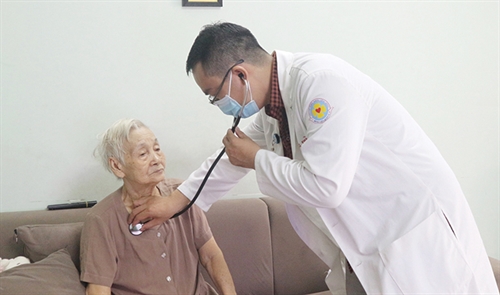 |
| Providing home-based medical exams for the elderly in Ho Chi Minh City__Photo: Dinh Hang/VNA |
Comments
Still, compulsory licensing may not be necessary considering the international efforts in promoting voluntary licenses with regard to COVID-19 treatments. On May 26, 2020, a global COVID-19 IP Pool was launched by the World Health Organization (WHO) with the purpose of encouraging pharma and biotech companies to voluntarily share their IP rights, technology transfers, and know-how relevant to potential treatments.[30] There have also been cases of EU and US pharmaceutical companies voluntarily waiving their IP rights in response to the pandemic. In particular, AbbVie, the pharmaceutical company behind Keletra, an effective drug against the COVID-19, has waived patent rights associated with it.[31] Following this, Gilead signed non-exclusive voluntary licensing agreements with several generic pharmaceutical manufacturers to further expand the potential treatment Remdesivir.[32] This means that the generic companies are able to begin production of these potentially antiviral drugs on a wider scale.
Ultimately, such moves are the exceptions rather than the rule. In case the voluntary licensing mechanism does not receive a warm welcome, unprecedented measures, i.e., compulsory licensing, need to be brought into consideration when national emergency occurs. Despite its unavoidable drawbacks, compulsory licensing is obviously a powerful public health tool - it can be instrumental for alleviating inadequate supplies of necessary pharmaceuticals as well as mitigating over costly drugs. Of note, considering Vietnam’s current position and its potential international cooperation, compulsory licensing should be carefully weighed prior to its implementation.-
